
Esjole L 75mg/40mg Capsule SR
Manufacturer
Allien Pharmaceuticals
Salt Composition
Levosulpiride (75mg) + Esomeprazole (40mg)
Key Information
Short Description
Esjole L 75mg/40mg Capsule SR is a prescription medicine used to treat gastroesophageal reflux disease (acid reflux) by relieving symptoms such as heartburn, stomach pain, or irritation.
Dosage Form
Capsule SR
Introduction
Esjole L 75mg/40mg Capsule SR is a prescription medicine used in the treatment of gastroesophageal reflux disease (acid reflux). It works by relieving the symptoms such as heartburn, stomach pain, or irritation. It also neutralizes the acid production in the stomach to prevent discomfort.
Directions for Use
Take this medicine in the dose and duration as advised by your doctor. Swallow it as a whole. Do not chew, crush, or break it. Esjole L 75mg/40mg Capsule SR is to be taken empty stomach.
How it works
Esjole L 75mg/40mg Capsule SR is a combination of two medicines: Levosulpiride and Esomeprazole.
Quick Tips
Do not consume alcohol while taking Esjole L 75mg/40mg Capsule SR as it can increase the risk of stomach damage. Long-term use may cause weak or broken bones. Take adequate intake of dietary calcium and vitamin D or their supplements. Do not take Esjole L 75mg/40mg Capsule SR for longer than prescribed.
Related Medicines
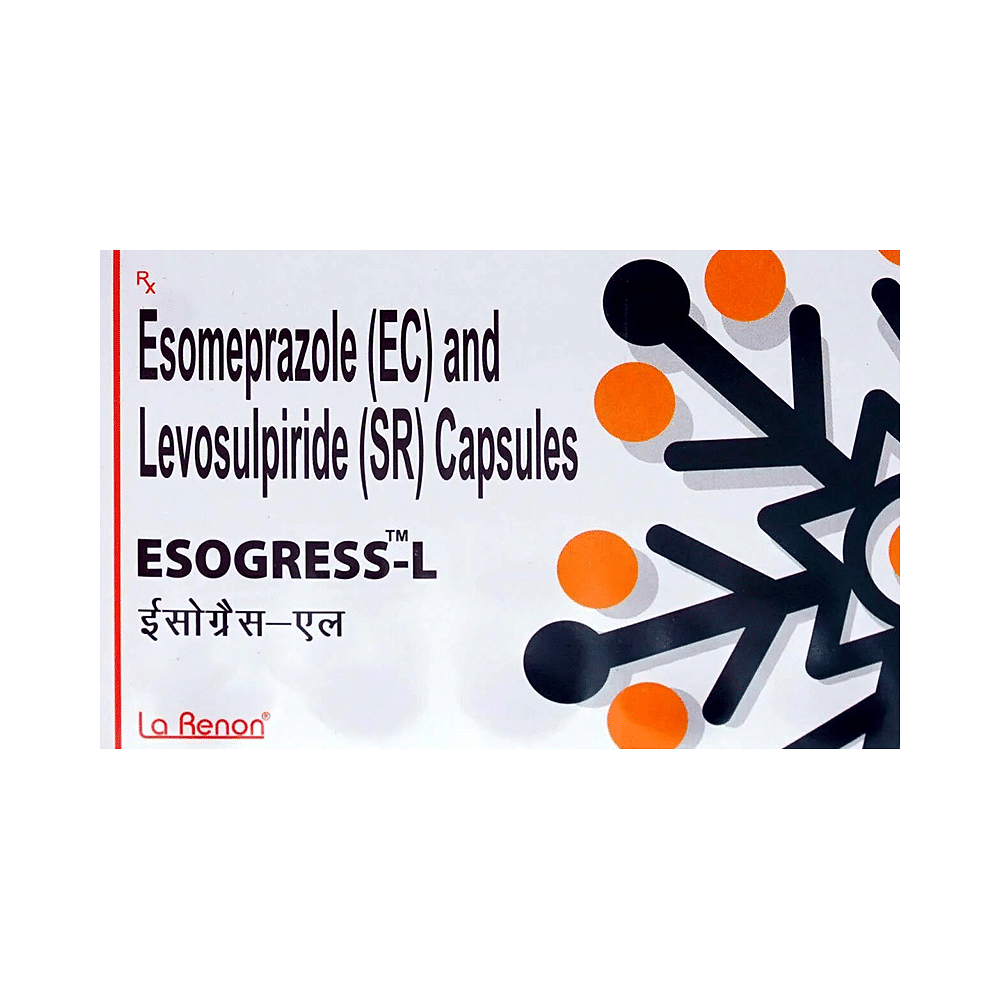
Esogress-L Capsule
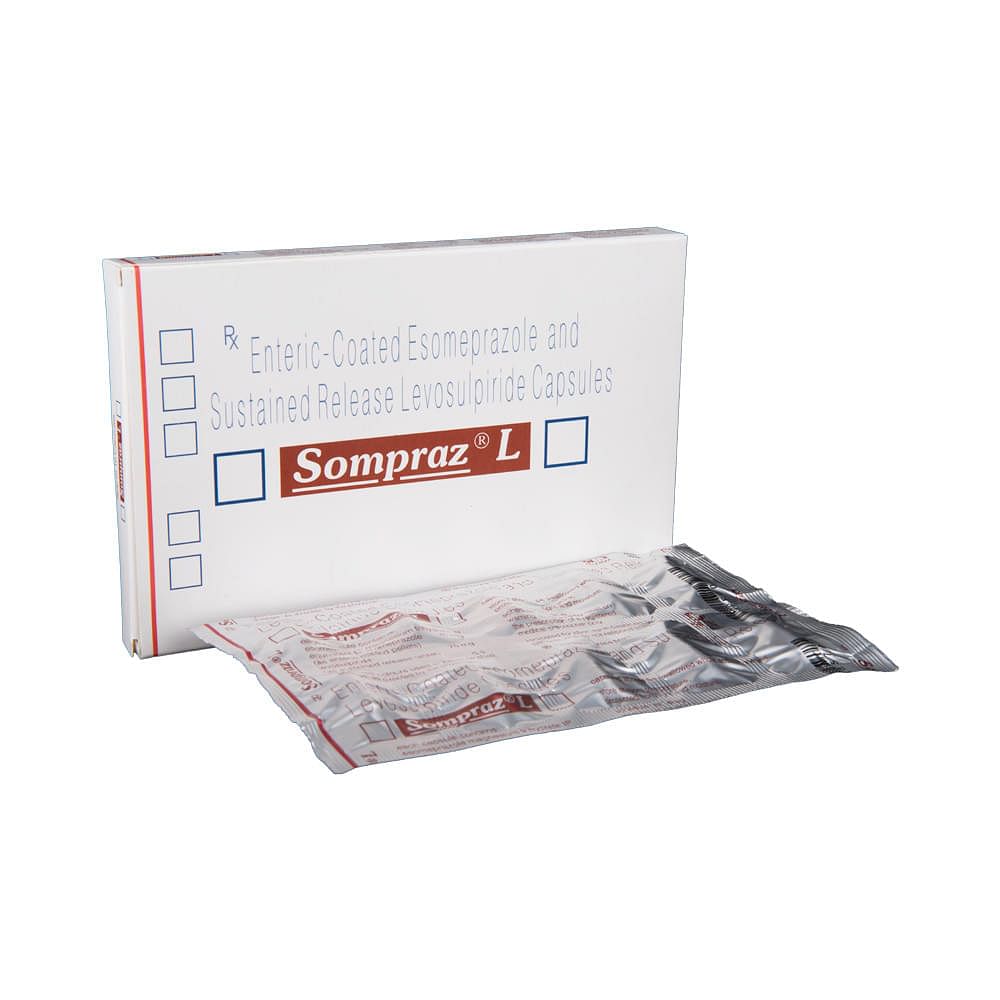
Sompraz L Capsule
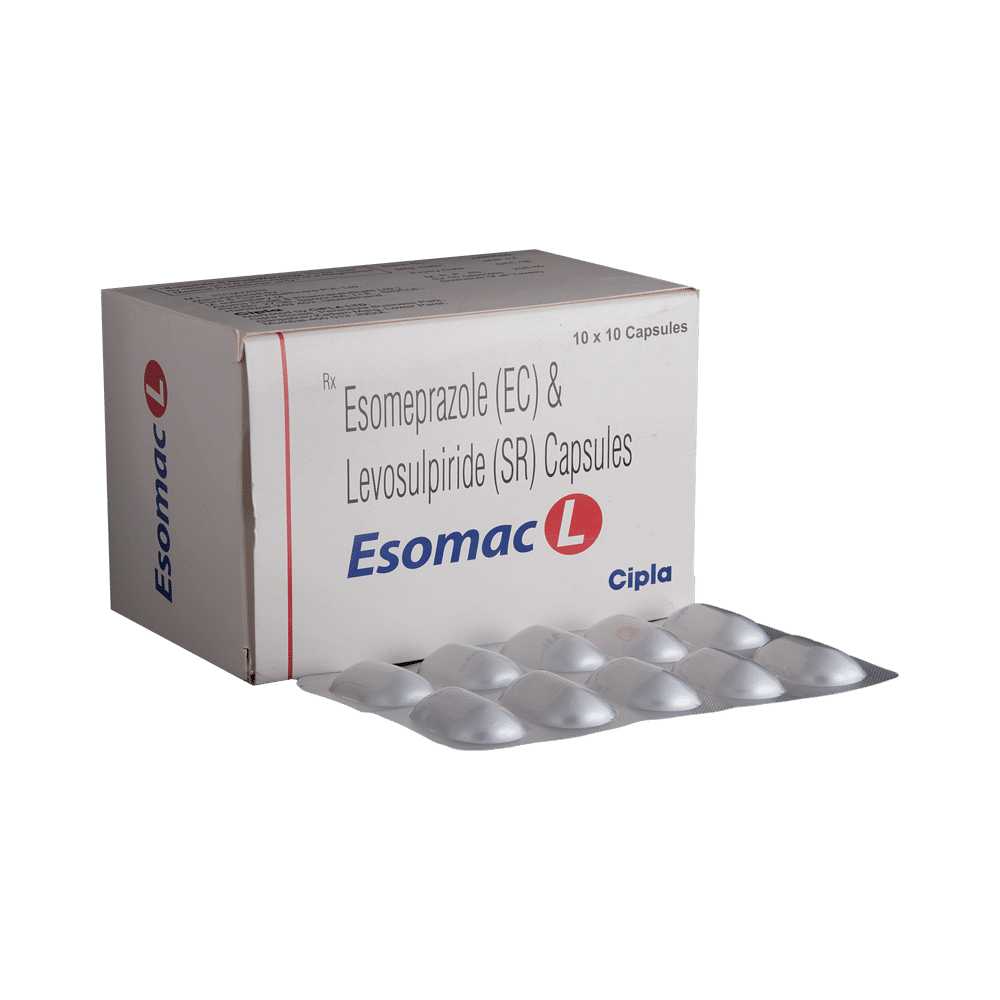
Esomac L Capsule SR
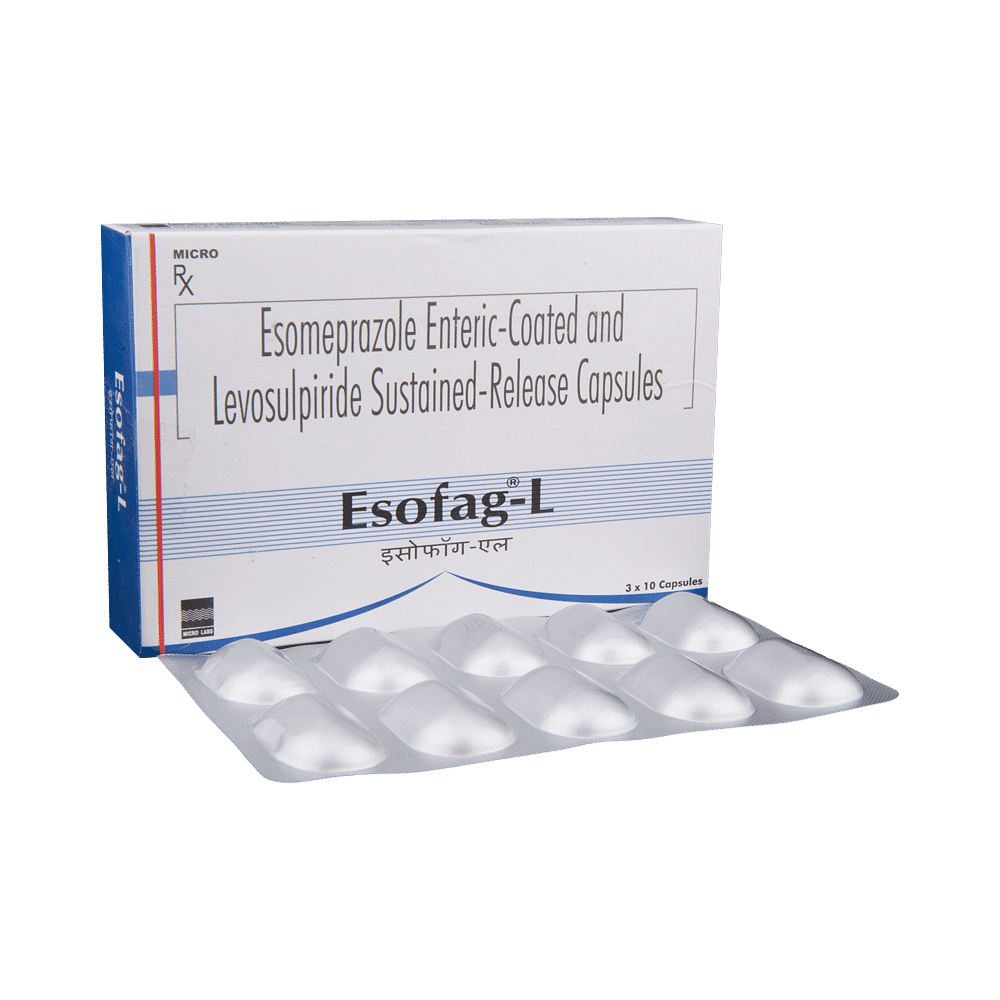
Esofag-L Capsule SR
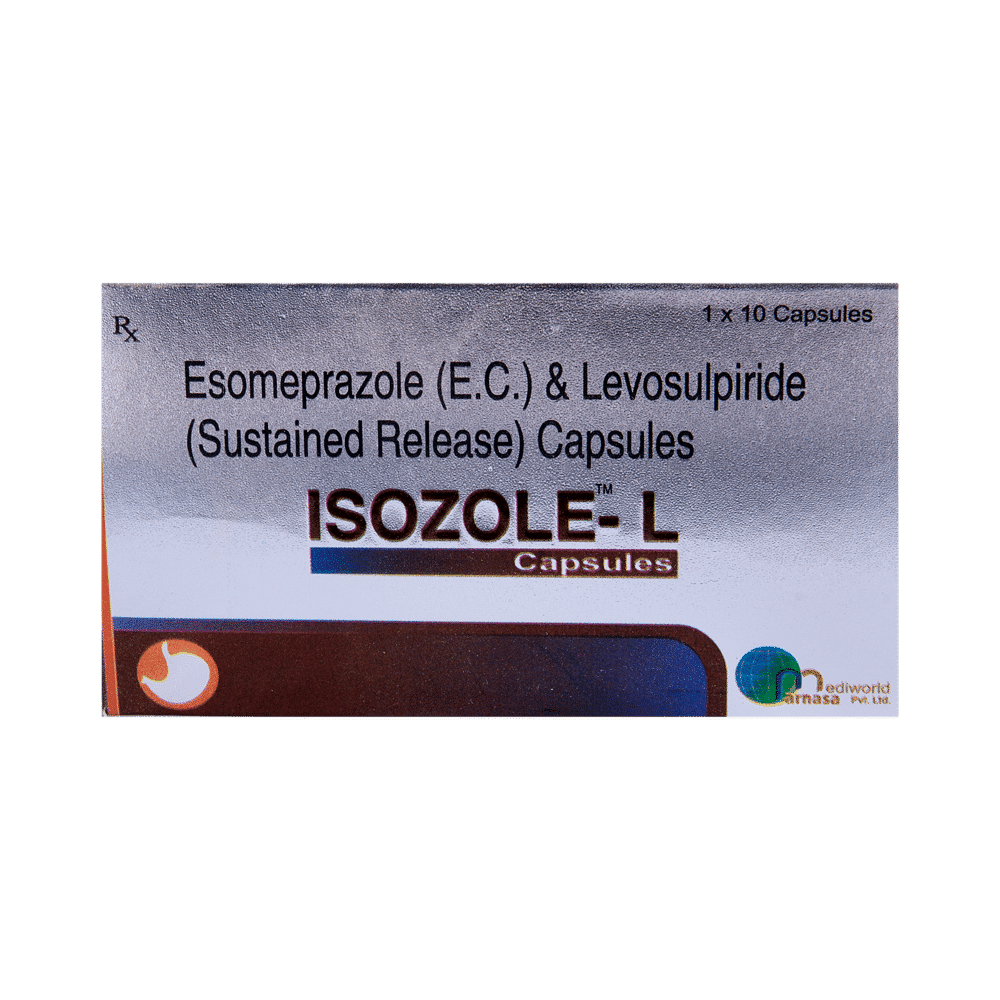
Isozole-L Capsule SR
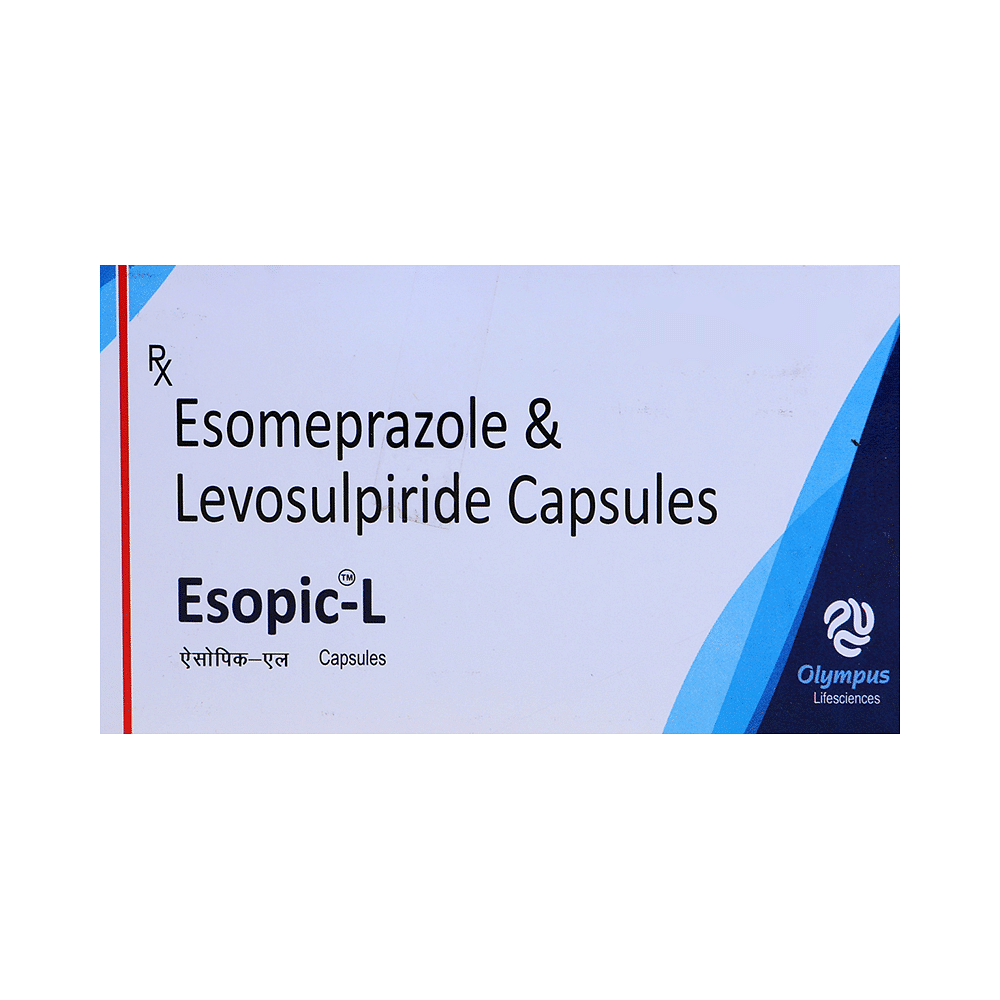
Esopic-L Capsule SR

Esosqaure L 75mg/40mg Capsule SR

Esocube LS 75mg/40mg Capsule SR
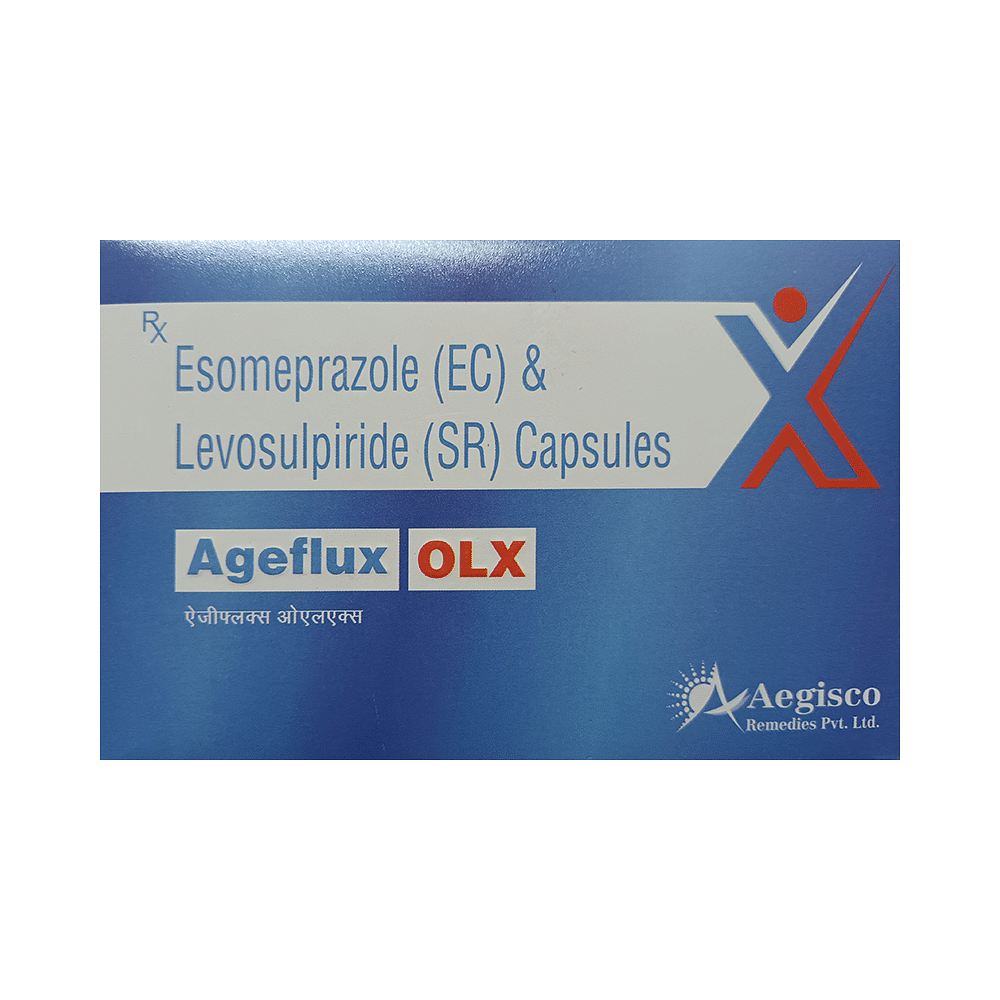
Ageflux OLX Capsule SR

Estra L 75mg/40mg Capsule SR
Frequently asked questions
What are the instructions for storage and disposal of Esjole L 75mg/40mg Capsule SR?
Store this medicine in its original container, tightly sealed. Follow the storage instructions provided on the packaging. Do not dispose of medication down drains or into trash; follow local regulations for proper waste management.
What is the best time to take Esjole L 75mg/40mg Capsule SR?
Take Esjole L 75mg/40mg Capsule SR exactly as prescribed by your healthcare provider. It's generally recommended to take one capsule daily on an empty stomach.
What are the contraindications associated with the use of Esjole L 75mg/40mg Capsule SR?
Patients with known allergy to any ingredient or excipient in this medication should not take Esjole L 75mg/40mg Capsule SR.
Can the use of Esjole L 75mg/40mg Capsule SR cause dizziness?
Yes, some patients may experience dizziness (feeling faint, weak, unsteady or lightheaded) when taking Esjole L 75mg/40mg Capsule SR. If you experience dizziness, it's advised to rest and resume medication only once your symptoms subside.
Does the use of Esjole L 75mg/40mg Capsule SR lead to increased risk of fractures?
Some studies suggest that taking Esjole L 75mg/40mg Capsule SR could be associated with an elevated risk for hip, wrist, or spine fractures due to osteoporosis. The risk was higher among individuals receiving high doses over a prolonged period (more than one year) of therapy.


